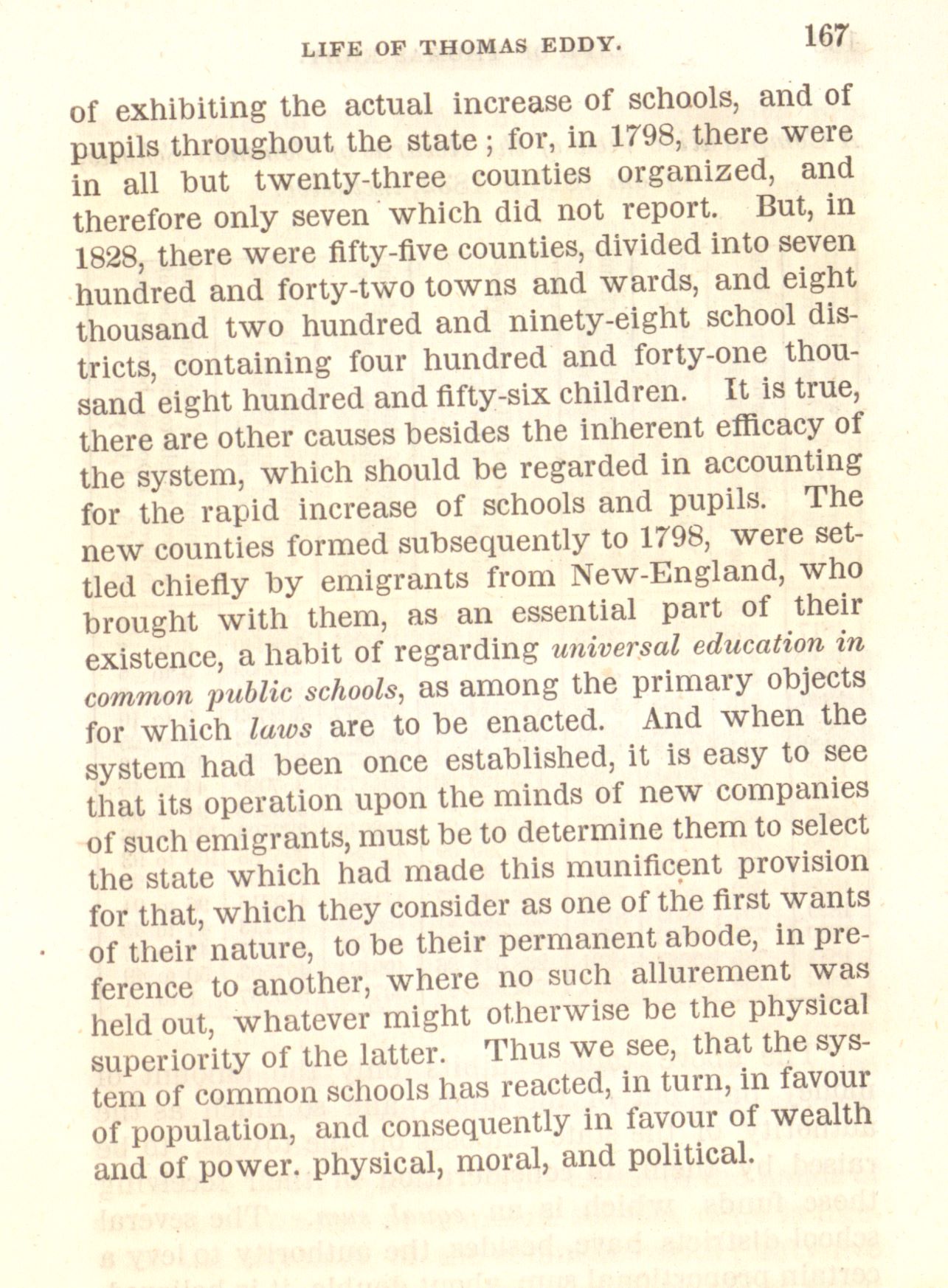of exhibiting the actual
increase of schools, and of
pupils throughout the state; for, in 1798, there were
in all but twenty-three counties
organized, and
therefore only seven which did not report. But, in
1828, there were fifty-five counties, divided into
seven
hundred and forty-two towns and wards, and eight
thousand two
hundred and ninety-eight school dis-
tricts, containing four hundred and
forty-one thou-
sand eight hundred and fifty-six children. It is
true,
there are other causes besides the inherent efficacy of
the
system, which should be regarded in accounting
for the rapid increase of
schools and pupils. The
new counties formed subsequently to 1798, were set-
tled chiefly by emigrants from
New-England, who
brought with them, as an essential part of
their
existence, a habit of regarding universal
education in
common public schools, as among the primary
objects
for which laws are to be enacted. And
when the
system had been once established, it is easy to see
that its
operation upon the minds of new companies
of such emigrants, must be to
determine them to select
the state which had made this munificent
provision
for that, which they consider as one of the first wants
of
their nature, to be their permanent abode, in pre-
ference to another, where
no such allurement was
held out, whatever might otherwise be the
physical
superiority of the latter. Thus we see, that the sys-
tem of
common schools has reacted, in turn, in favour
of population, and
consequently in favour of wealth
and of power. physical, moral, and
political.

